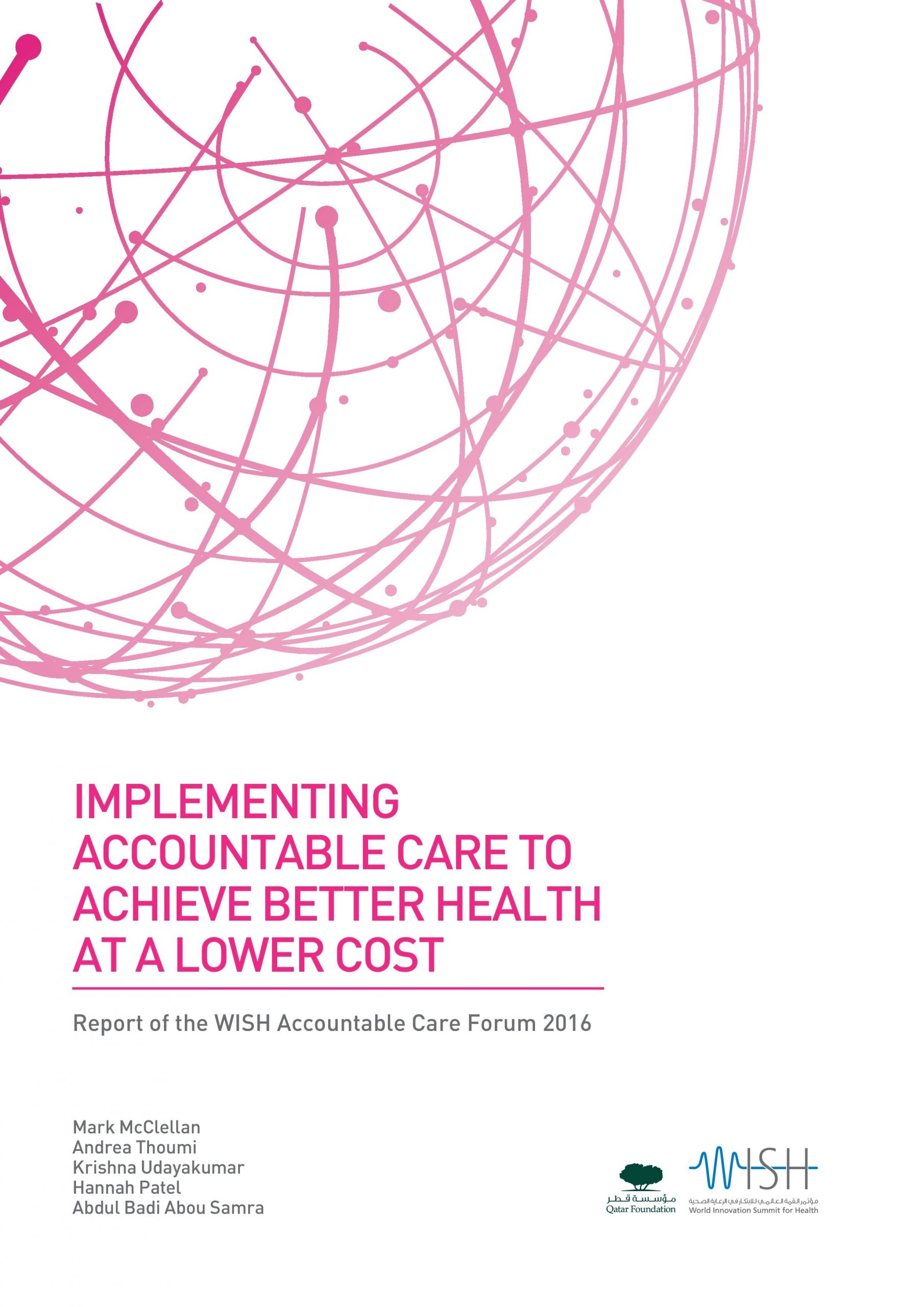Executive Summary
Most countries have well-established mechanisms to pay for medical treatments. However, many innovations – telemedicine, use of community health workers and lower-cost versions of treatments – are inadequately reimbursed, if reimbursed at all. Payment systems are often slow to support new care models, and understandably so: additional payments for innovations create fiscal concerns; innovations may not be cost-effective unless integrated appropriately with other services; and existing institutions may lack experience or clear authority to support new services. Accountable care can help to overcome such barriers.
Accountable care seeks to align health financing and regulatory systems with personcentered care reforms and enable changing population health needs and opportunities to be addressed at a lower cost. We define accountable care as a group of providers who are held jointly accountable for achieving a set of outcomes for a defined population over a period of time and for an agreed cost. Evidence suggests that adopting accountable care through incremental policy changes or comprehensive payment reforms can reduce hospital readmissions, emergency department use and overall spending. Accountable care can also increase patient satisfaction, improve chronic disease management and prevent costly complications.
However, to implement accountable care requires new organizational capabilities and professional expectations. Effective implementation is not only technical. It will involve putting into practice new performance measures and financing models, but also steps to support healthcare organizations in managing change.

